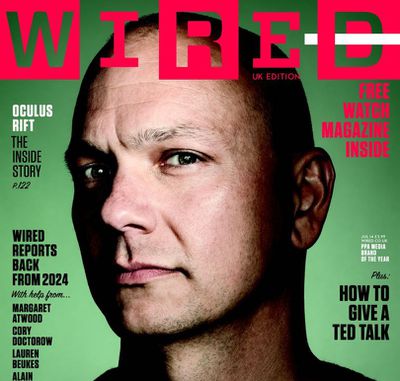Over the past few weeks, former Apple executives that originally led the team behind the iPhone's creation have been reminiscing about the time before the smartphone's debut, which will see its tenth birthday tomorrow, June 29. The latest interview has been posted by Wired, with "father of the iPod" Tony Fadell discussing the multiple prototypes of the original iPhone, Apple's attempt to create a touchscreen MacBook, the poorly received collaboration between Apple and Motorola in the Rokr, and more.
Addressing the "many different origin stories for the iPhone," Fadell pointed out that such stories were the result of Apple's multiple running projects and prototypes that it had for the iPhone. These included four big brands: "a large screen iPod" with a touch interface, an "iPod phone" that was about the size of an iPod mini and used a click wheel interface, the Motorola Rokr, and even an ongoing attempt to get a touchscreen onto a MacBook Pro to further prove the feasibility of the technology that would eventually end up in the iPhone, and never in a MacBook.

The touchscreen Macbook project was basically trying to get touchscreen technology into a Mac to try to compete with Microsoft tablets. Steve was pissed off, and wanted to show them how to do it right. Well, that might have been the project to show Microsoft how to do it right, but they quickly realised there was so much software and there were so many new apps needed, and that everything had to be changed that it was very difficult. Plus the multitouch itself, we didn't know we could scale it that large to a full-screen display. Those were the challenges over on Mac.
At the time before the launch of the iPhone, the iPod was Apple's most popular product, and Fadell remembered the company's yearly pressure to continue to grow the brand and entice customers "every holiday." Eventually, Apple's collaboration with Motorola was catalyzed by the company's concern over its users asking themselves, "Which one am I going to take, my iPod or my cell phone?" Apple didn't want to lose that argument, so it introduced the first iTunes support in a cell phone in 2005 with the Rokr, which Fadell said "was not deliberately made poor."
Limitations of the Rokr included a firmware restriction of 100 songs to be loaded at any one time on the cell phone, as well as a slow music transfer process from a computer in comparison to devices at the time specifically dedicated to music playback. Motorola eventually ditched iTunes in the Rokr line as Apple continued releasing iPods like the 2005 iPod nano and its ability to hold up to 1,000 songs, which Motorola saw as undercutting Rokr. Of course, rumors were also ramping up surrounding Apple's work on a phone of its own.
No, it was not deliberately made poor. Not at all. We tried our best. Motorola would only do so much with it. Their software team was only so good. Their operations system was only so good. And that experience just didn't work very well. It was a clash of all kinds of problems, it wasn't a case of trying to not make it good.
We were trying to do this because we didn't want cell phones to come eat our lunch, OK? The Motorola Rokr died much earlier than the arrival of the iPhone. This was us trying to dip our toe in the water, because we said, 'Let's not make a phone, but see how we can work with phones to see if we can have a limited number of songs on a phone'. So people could use iTunes and then they would want to move over to an iPod. It wasn't about making it less good because the iPhone was coming. This was well before the iPhone was even thought of.
The company's concerns during its iPod days even looked forward into current technology, particularly over storage capacities and the "celestial jukebox." Fadell said that Apple foresaw users no longer needing to be concerned with storage tiers and paying more for more space, because it "could see a time" when network speeds would ramp up alongside better technology and lead to streaming and downloading directly on a mobile device, like Apple Music and Spotify.
It was very clear, after the Rokr, and after everything we had learned in what it was going to take, that the worry was about the 'celestial jukebox' - people wouldn't have to buy large capacity iPods, 150GB or so, because they were soon going to be able to download. So we had an existential problem, people were not going to have to buy larger and larger iPods. The high-capacity iPods were where we were making all our money, and if they could download at any time - and we could see the time when the networks were going to get faster because of 3G - we were like 'oh my God, we're going to lose this business' to this music jukebox in the sky, which is basically what Spotify is.
In the rest of the interview, Fadell dives into the iPhone team's massive dissection of every possible mobile device at the time to scope out the competition, the remaining similarities between current generation iPhones and original iPods, and the ongoing legacy of 2007's first iPhone.
Fadell said that it changed his life, and "how my kids are growing up compared to how I and my wife grew up," but he hopes iPhone users remember to unplug every now and then: "...it requires all of us to make the proper changes in our lives to make sure we don't lose the analogue portion of our life and we don't just stay digital and mobile all the time."

















